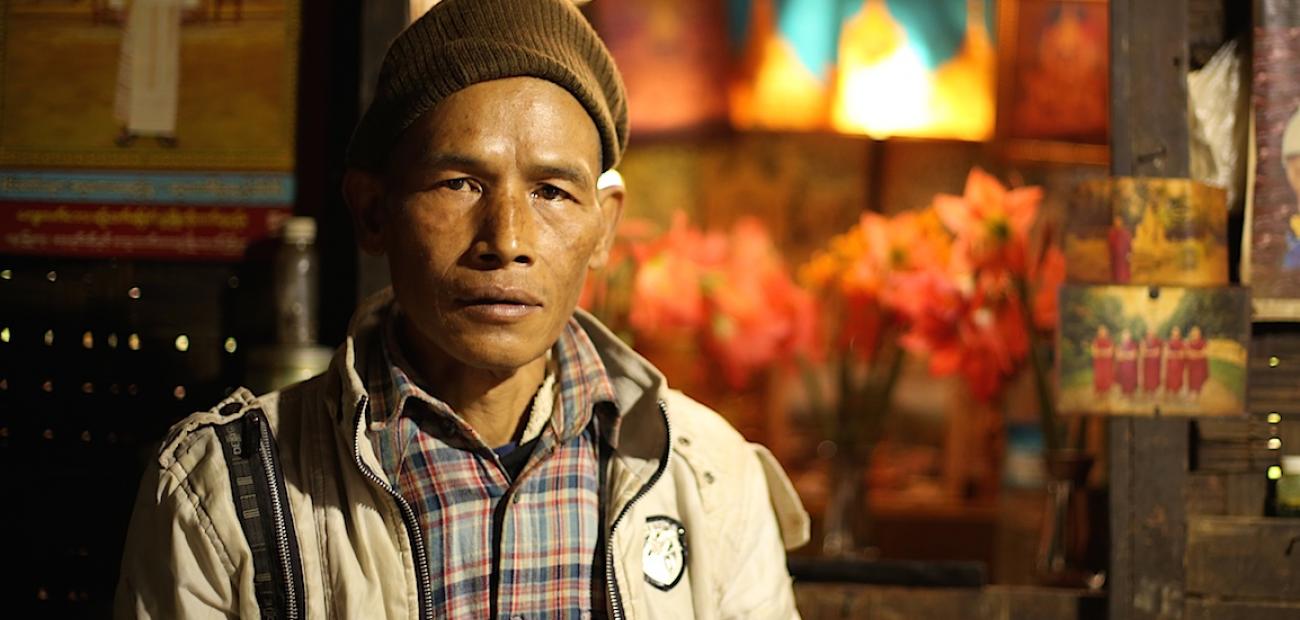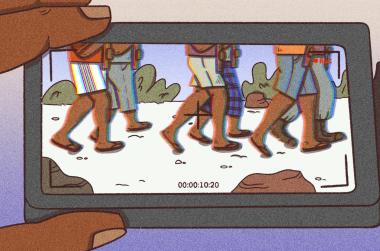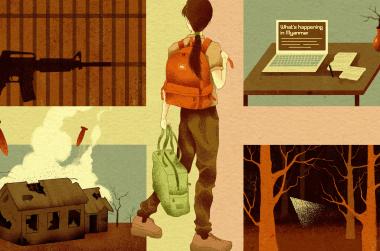From the porch of his sturdy wooden home, Yar Pyay can peer across the rooftops of Lahe’s tumbling streets, surveying a town that he helped administer for much of his career. He grew up in another part of the Naga territory and came to Lahe as a clerk in the government of the late military dictator Ne Win, who had seized power in 1962 and whose decades in power were characterised by economic malaise, international isolation and worsening civil conflict. After Ne Win relinquished power following mass student-led protests in 1988, Yar Pyay joined the General Administration Department, another powerful arm of military government.
Yar Pyay’s youth was overshadowed by fierce fighting between government forces and ethnic minority groups, including fellow Nagas, fighting for greater autonomy. And the decisions he made as a young man would serve to divide him from the friends of his childhood.
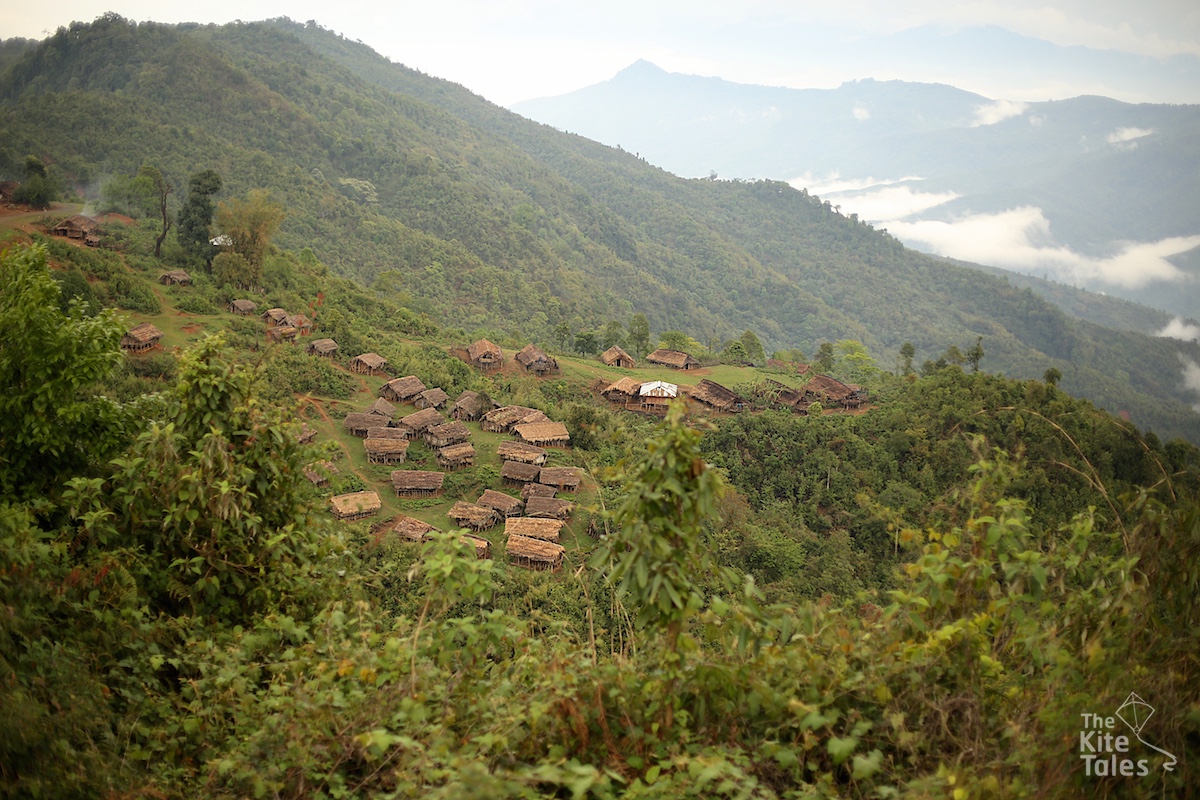
“No one else in my family attended school. I was the first. I have nine siblings. I was number seven. There wasn’t a school in the village (in Namyun township) so I was sent away.
“It was my oldest brother who sent me because he couldn’t go himself. In ’66 in Hkamti, he told me, ‘Since I can’t go to school myself, you’re my substitute.’ To this day, I still remember what he said.
“I hadn’t even heard of school until then. I was lucky. My parents — well it wasn’t just that they were poor, they simply had no grasp of what education meant. I guess my eldest brother was travelling for work so he must have gained some general knowledge. He couldn’t send more of us to school though. He was struggling even for himself.
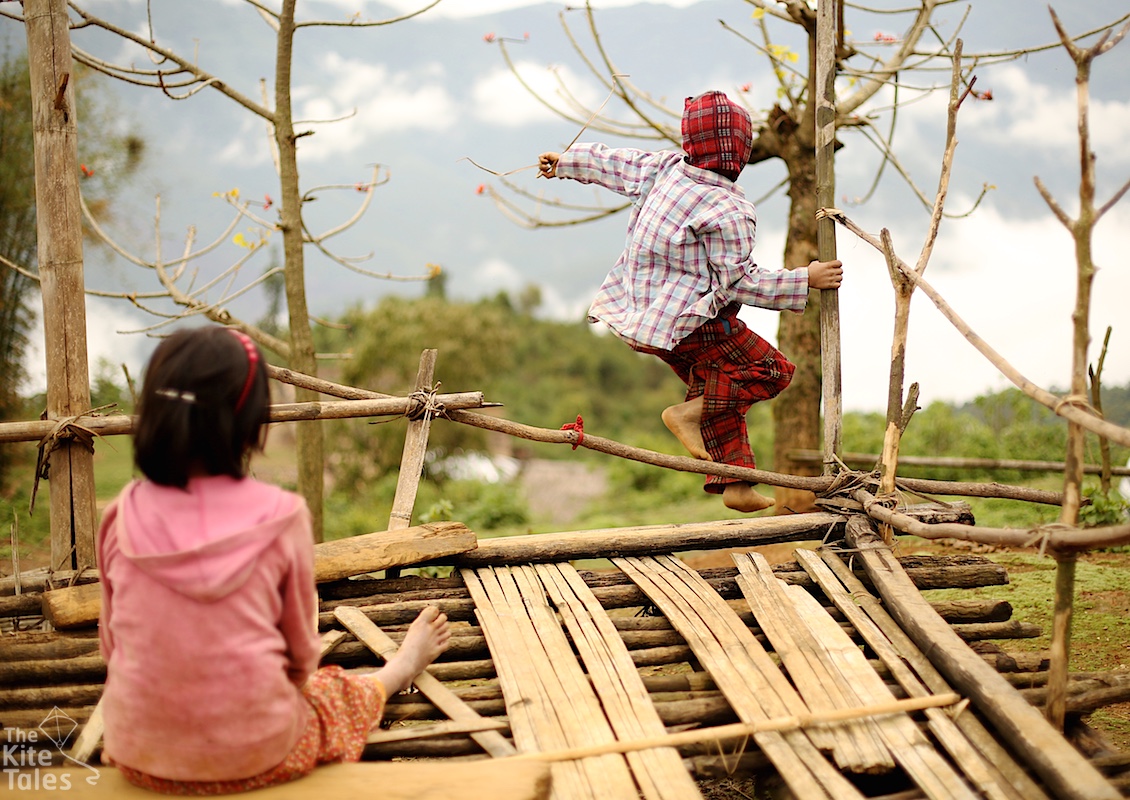
“I was presented with a fork in the road. Many of my friends joined the ethnic armed groups — about 60 or 70 of them — and they didn’t return. It was a lack of life goals and ambitions. I was the only one left behind here.
“My youngest brother joined too, but deserted when our father died and he wasn’t given leave to come back.
“I quit school after failing the 9th grade. That was in ’76. For the next two and a half years I did odd jobs, like digging for gems and such. And then I got demoralised and decided to go into the civil service. At that time, the local situation wasn’t very good and it wasn’t safe to travel.
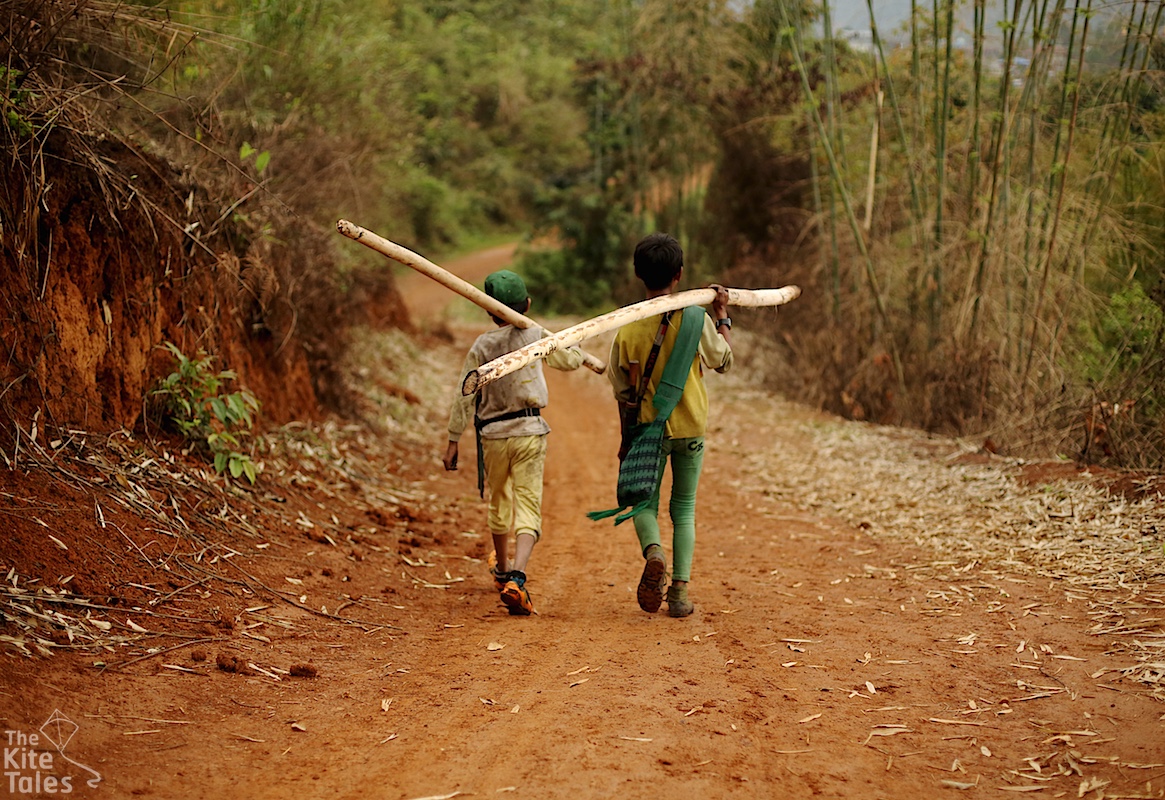
“At first I didn’t have much understanding about political parties. But doing business is like a basket without a hem, it keeps unravelling. I decided I must work for the government.
“I arrived in Lahe in May ’79. So it’s been 37 years. The town was very small then. Beyond the hill with the zedi was a jungle. There was jungle on this side too. And I think there were only about 100 households — the civilians. In terms of civil service people, I think there were a little over 200 people. That’s my estimate.
“The elders told me the Ma Sa La (Ne Win’s Burma Socialist Programme Party) in Lahe needed a clerk. It seems the previous clerks never stayed long because they weren’t able to handle the workload. But I did that job for over 10 years.
“From what I observed, U Ne Win was a leader and he tried to do good things. Of course there’s not such thing as someone who’s free from any mistakes or faults. But I think he had goodwill for the country.
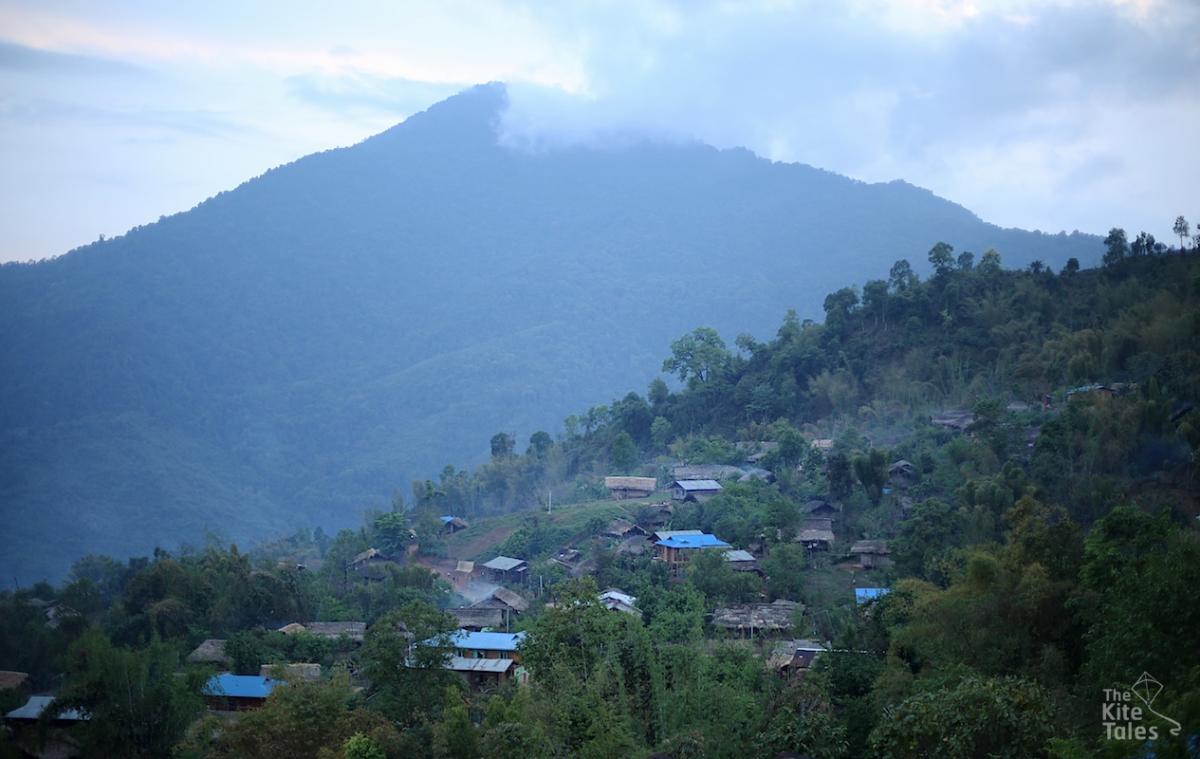
“I got married here. I have three daughters and four sons. The eldest quit school also at 9th grade and is working as a carpenter. The daughter after him is working at the GAD in Homlin. The third one is doing odd jobs in Tanaing. The fourth is a deputy police lieutenant in Hkamti. The one below him recently passed her 10th grade and is studying for a degree, in agriculture I think. The youngest two are still students. I have to say I’m satisfied with their jobs.
“Around 2010 I finally met up with those friends who joined the armed groups. We hadn’t seen each other for about 30 or 40 years. One is now a general even. He is older though. When we were at school, he was around 17 or 18 while I was about 10 or 11.
“I read a lot so I have this belief that a revolution that uses only guns is not sufficient. There are guns but there wasn’t enough to eat in our hills. What’s the point of having bullets if you don’t have enough food?
“The village where I was born no longer exists where it was. The only things left are big trees. People moved in search of clearer water and younger grass. We would clear land, set up village, and then clear land in another area and set up village there.
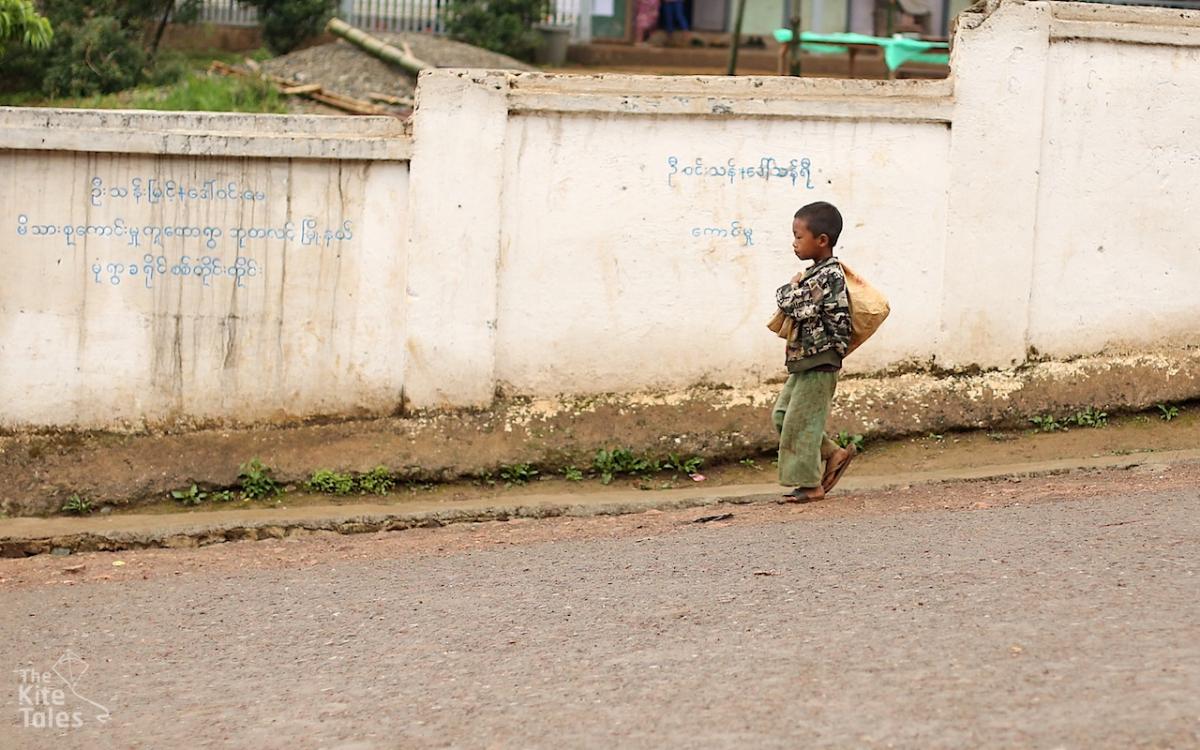
“We cannot abandon the idea of developing ethnic areas. There have been lots of changes here but the changes are superficial.
“A few months ago, we got 24-hour electricity. For mobile phones, it was about 3 years or so ago when we got a CDMA connection. The pace of change has accelerated. (But) it hasn’t affected people very much, mainly because people are illiterate.
“My superiors would tell people ‘you should send the kids to school’ and they would say ‘you get food from the farm not from school’. In the past I didn’t know how to respond when people said that. But now I do. When you’re illiterate, even when you have electricity and phones you don’t know how best to utilise them. You don’t have ambition or goals. Because you’re not educated you live simply, you deal with the future when it happens.
“For now, my main focus is on religion, for my soul and my afterlife. I’m no longer hankering after material things or money. I’m trying my best to sever my attachment to these things. I’m getting old and my health isn’t very good anymore, so I can’t do nationalistic stuff anymore.
“If you want to bequeath anything (to the younger generation), bequeath education. The rest is up to them.”
Interview April 2016

